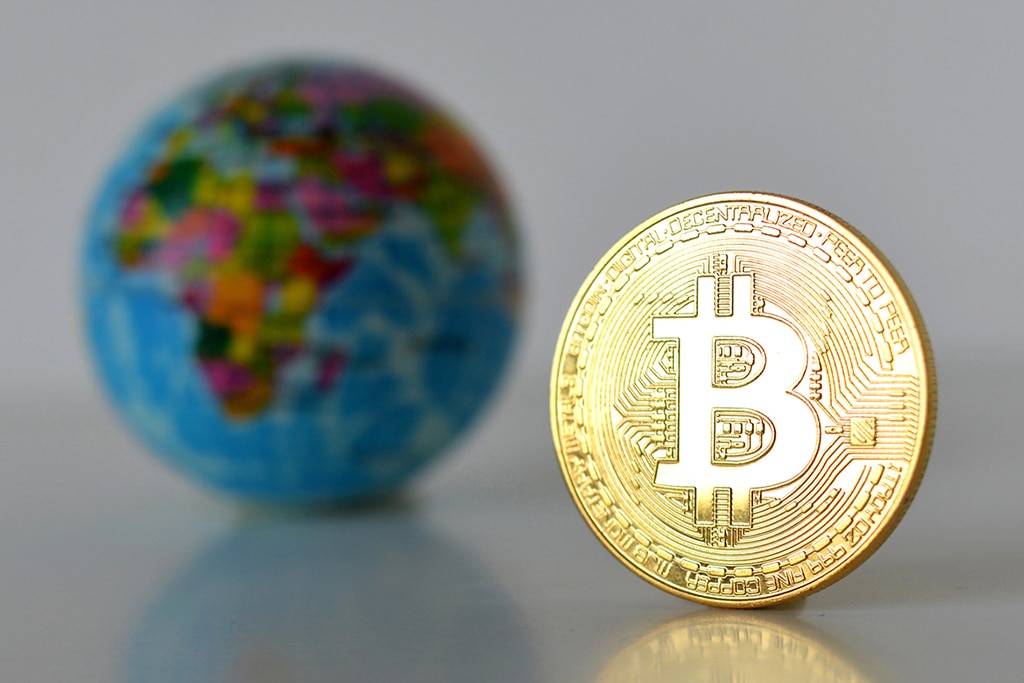
Please check out latest news, expert comments and industry insights from Coinspeaker's contributors.
There are many reasons to think cryptocurrency adoption will have a positive impact on developing nations.

Imagine a world in which a small bag of groceries costs almost your entire monthly income – this is the reality faced by thousands of people in countries like Venezuela, where runaway inflation means that people have to weigh bundles of banknotes rather than count them. With paltry wages and economic instability wreaking havoc in developing nations across the world, people are looking for any way they can to escape poverty. Could cryptocurrency be their savior?
There are many who believe that Bitcoin and other cryptocurrencies can make a real difference in people’s lives, supporting economic growth and democratizing access to financial services.
At first glance, it may not appear to be the economic lifeline that many proclaim it is. Crypto began with Bitcoin, which burst onto the scene in late 2009 in response to the so-called Great Recession. It was designed to give people financial freedom from banks, an anti-inflationary and alternative form of money that no government controls. But it has proven to be extremely volatile, with numerous bull runs bringing its value to new all-time highs, followed by stunning crashes that saw billions of dollars in value being wiped out.
The volatility of crypto makes it a risky game for investors, but for the developing world that is beside the point. For it’s not the value of the cryptocurrency that can change the game for their economies but rather the financial independence it brings.
The advantages of cryptocurrency are many, but perhaps the most critical is that it offers equal access to all. Today, even the poorest of people in the world are able to access a mobile device and an internet connection, and that’s all that is required to download a crypto wallet and effectively become your own bank. With a digital wallet, it becomes possible to transact with the smallest amounts of money, sending and receiving funds with little to no fees. There are no third parties involved, no ID is required, and transactions can be processed in seconds.
Because most cryptocurrencies are anti-inflationary, it offers a way for millions of people in developing countries to protect themselves against inflation and preserve the value of their savings. It can facilitate low-cost remittances to any part of the globe in an instant. And it can provide significant investment opportunities to risk-minded individuals.
It’s for these reasons that cryptocurrency has already proven to be incredibly popular in many of the world’s developing economies. A 2022 study by the cryptocurrency exchange Gemini notes that citizens in countries with the highest inflation rates are among the most likely to adopt crypto. It found that non-crypto owners in Brazil, Mexico, and India are the most likely to purchase crypto for the first time within the next year – and it’s no coincidence that each of these countries has seen its local currency devalue sharply compared to the US dollar over the last ten years.
The same study lists numerous developing economies among the top 20 in terms of crypto adoption. Number one is Ukraine, where the economy has suffered terribly as a result of Russia’s invasion. In countries like Nigeria, South Africa, Kenya, Venezuela, Colombia, and Vietnam, more than 6% of their respective populations now own crypto, with many seeing it as a hedge against inflation of their local currencies or as a viable investment.
The growing adoption of crypto in third-world nations can have a significant impact on their economic development. As crypto becomes more commonplace and widely accepted, it promises to boost financial inclusion amid populations where a large number of people still lack access to basic banking services. Until their adoption of crypto, these people were forced to make do with cash only, making it extremely difficult for them to build up savings and participate in the local economy.
Crypto changes that because its financial ecosystem is inclusive of everyone. Through crypto, it’s possible for anyone to tap into a wide range of decentralized financial services, including lending, borrowing, trading, savings, and yield farming activities, no matter how little money they start out with. For the first time, millions of people will have an opportunity to invest and grow their wealth rather than seeing it evaporate as their cash savings slowly devalue.
With a new generation of decentralized applications, crypto users also have access to some novel earnings opportunities that are only possible with blockchain technology. In the Philippines and other Asian countries, so-called “play-to-earn” games like Axie Infinity have become all the rage, giving video game players the chance to earn cryptocurrency rewards for completing missions and daily challenges and winning battles against other players. Some Axie Infinity players reported earning hundreds of dollars per month during the height of the Covid pandemic, generating a valuable income to support their families at a time when many others had lost their jobs.
Different kinds of dApps enable different ways to make money with crypto. One of the most popular platforms to emerge in the past year is the fitness dApp Sweat Economy with its pioneering “move-to-earn” economic model. With Sweat Economy, it literally pays users to walk. The app connects to a fitness tracking app such as Google Fit in order to count how many steps the user takes each day. For every 1,000 steps a person takes, they’ll be paid 1 SWEAT, which is the native token of Sweat Economy. It’s possible to earn up to 10 SWEAT per day if users are prepared to bust a gut and take the maximum number of 10,000 steps.
These kinds of apps are proving to be especially popular in developing countries simply because of the impact they can have on struggling economies. While 10 SWEAT is unlikely to go very far in a country like the US, in a country that’s stricken with hyperinflation, such as Zimbabwe or Afghanistan, those earnings can make a real difference to people’s lives.
As well as greater inclusion and opportunities, crypto promises to transform developing economies by increasing transparency and reducing corruption. For many third-world countries, fraud is a real problem, and one of the main causes is an opaque financial system. The decentralized, transparent nature of crypto can prevent things like ‘under the table’ payments because it can act as a public ledger of transactions. Corrupt officials can’t easily hide illicit payments, so trust in the financial system and government can be increased.
To conclude, there are many reasons to think cryptocurrency adoption will have a positive impact on developing nations. The increased financial inclusion, greater earnings opportunities, and reduced corruption, combined with crypto’s ability to act as a hedge against inflation, can help to drive more sustainable economic growth.
Cryptocurrency won’t be able to solve the world’s economic problems all by itself, but by increasing participation and providing new opportunities, people finally have a fighting chance to obtain the financial freedom they desire.
Disclaimer: Coinspeaker is committed to providing unbiased and transparent reporting. This article aims to deliver accurate and timely information but should not be taken as financial or investment advice. Since market conditions can change rapidly, we encourage you to verify information on your own and consult with a professional before making any decisions based on this content.

Please check out latest news, expert comments and industry insights from Coinspeaker's contributors.




